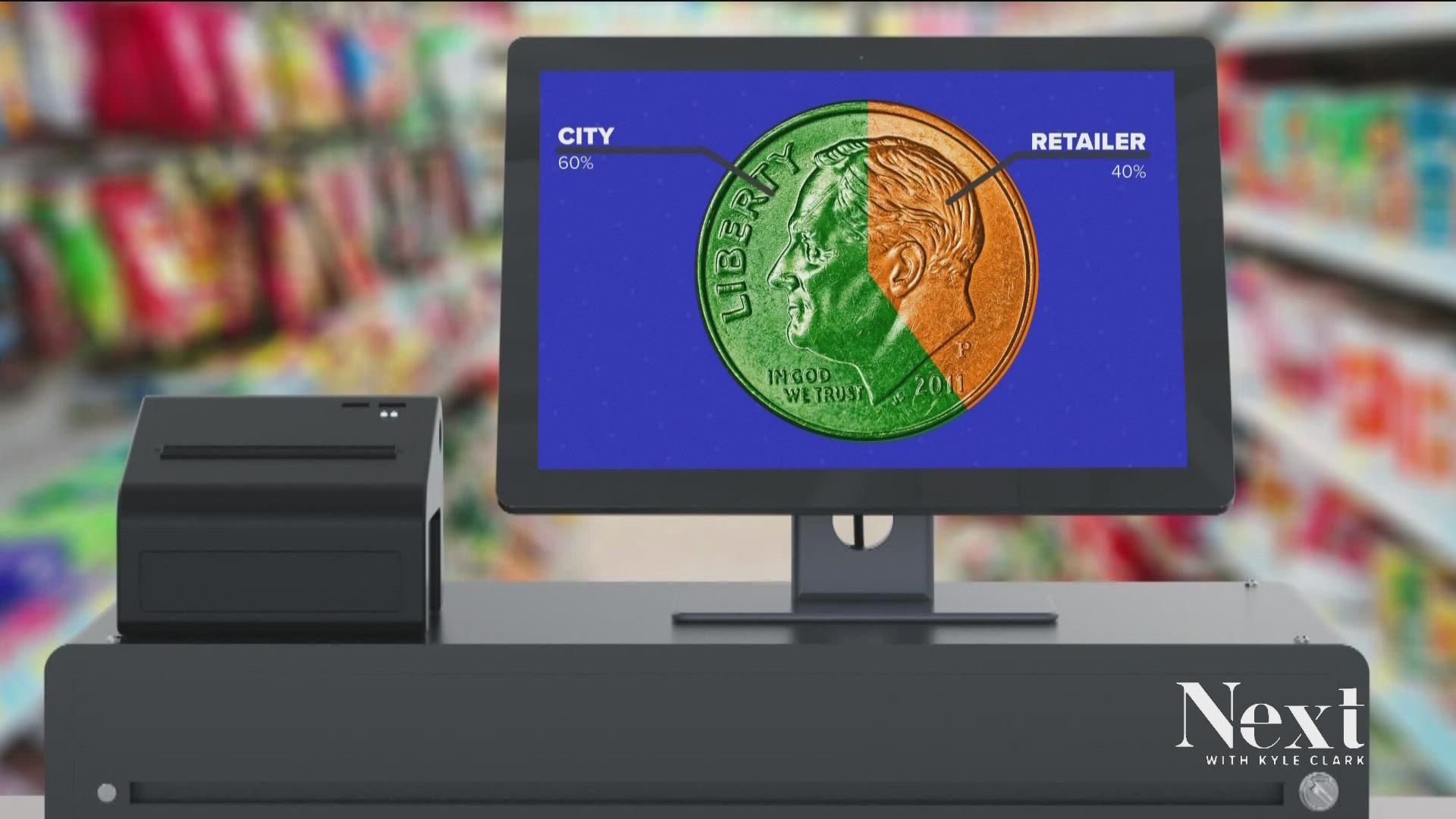DENVER — A handful of cities in Colorado now have bag fees to reduce the usage of plastic and paper bags.
Fort Collins has the newest: a 10-cent bag fee that began in May.
Aspen and Boulder have the state's oldest bag fees. Aspen banned plastic bags in 2012 and charges 20 cents for paper bags. Boulder's bag fee started in July 2013 and is 10 cents for a disposable bag.
Denver's 10-cent paper or plastic bag fee started in July 2021. It generated several questions from Next with Kyle Clark viewers.
Who gets the 10 cents?
Denver's disposable bag fee ordinance allocates for six cents to go back to the city and for four cents stay with the retailer.
The four cents that the retailer keeps is not meant to be revenue. It is supposed to be used for signs about the bag fee, disposable bag fee education for customers and staff and to provide free reusable bags to customers.
Safeway spokeswoman Kris Staaf said that the grocery chain uses the money for training employees, providing customer education with posters and flyers about the bag fee, free bags to customers, non-profits and schools and producing internal training videos for staff.
Has the city spent its 60% share appropriately according to terms of the ordinance?
"We've spent what revenues we've collected so far on education. We had a 'bring your own bag' campaign to let people know that it was coming, but to also to encourage people to use reusable bags," said Winna MacLaren, spokeswoman for the city's climate action office.
The city has also used the money to hire staff to administer the program, improve infrastructure to increase plastic bag recycling and to give out free bags.
"We have had some challenges with delays and shortages, and so our next shipment is due back actually in a couple of weeks for more reusable bags. We did go through, I want to say 40,000 bags, since this was implemented last summer," said McLaren.
How much has Denver collected in bag fees?
In the first three quarters of the program (nine months), Denver has collected $1,621,773. If you divide that by the six cents the city gets from each bag, that equals 27,029,550 bags sold.
Before the bag fee started, Denver's Chief Climate Officer Grace Rink estimated that Denver residents use four times as many bags.
"We know that Denverites use at least 100 million plastic bags at checkout every year," Rink said in July 2021.
Statistics from Boulder show that there is a limit to getting people to stop paying for bags.
Since Boulder's bag fee took effect in 2013, stores responsible for charging the fee consistently bring in between $4 million and $4.5 million each year.
"I suspect the factors include a portion of the population that is just willing to pay a 10-cent fee and the student population, which turns over so much. I do think the fee likely needs to be higher now to impact bag use," said Jamie Harkins, Boulder policy advisor for climate initiatives.
How will a higher fee impact use?
Louisville just started a 25-cent bag fee in January.
Just because you live in a city that does not charge a fee does not mean you will not be impacted.
Because of a bill signed into state law last year by Gov. Jared Polis (D), starting in January 2023, stores in all municipalities will be required to charge at least 10 cents for plastic or paper bags.
That law requires that most plastic bags be banned starting in January 2024.
SUGGESTED VIDEOS: Full Episodes of Next with Kyle Clark

